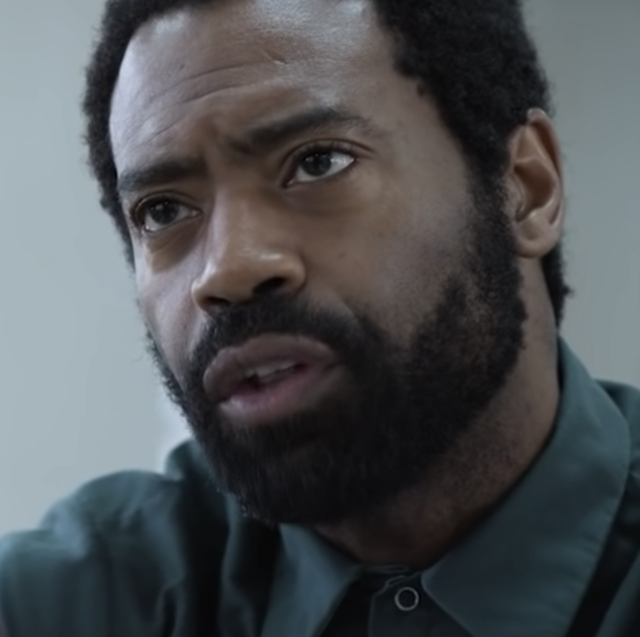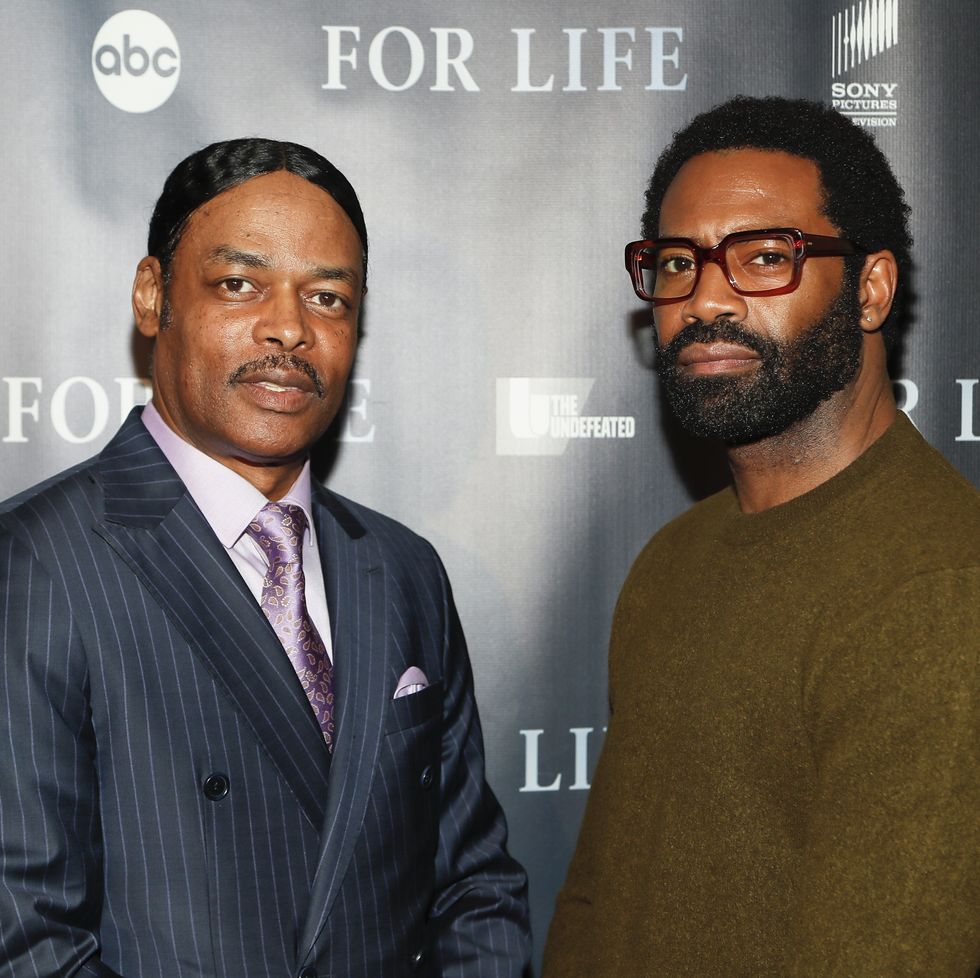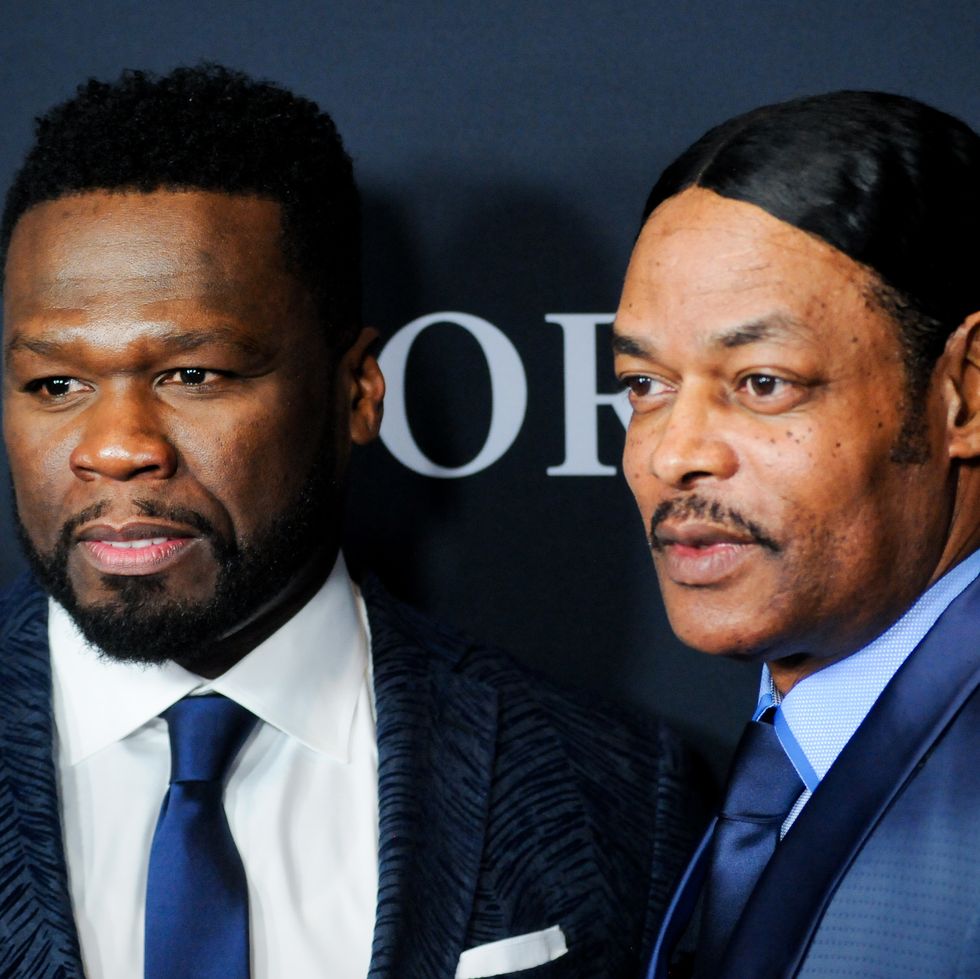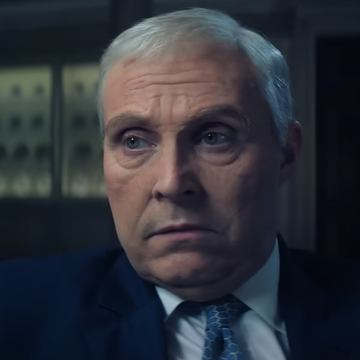ABC's new show, For Life (premiering Tuesday), isn't your average legal drama. The attorney at the heart of the show, Aaron Wallace (played by Nicholas Pinnock) is incarcerated for a crime he didn’t commit, and is serving a life sentence of his own while trying to help his fellow prisoners earn their freedom. The show which, counts Curtis “50 Cent” Jackson as an executive producer, is a fictionalized series, but it’s also inspired by the life of a real man. Isaac Wright Jr. was railroaded by a corrupt prosecutor, and really did go from being a prisoner with a life sentence to being a lawyer. Here’s what you need to know.
Who is Isaac Wright Jr.?
In 1989, Wright was charged with leading a cocaine trafficking ring. “I’d never been through the system before,” he said, and the charges upended his life. Prior to his arrest, he’d been an entrepreneur, and Wright told Esquire that he’d co-created the girl group Cover Girls, which featured his wife Sunshine and scored some dance-pop hits in the ‘80s. “Everything was really, really, really good,” says Wright. “And sometime after it started going really well for us, we decided to move to New Jersey.”
But late 1980s New Jersey was home to a chief county prosecutor named Nicholas Bissell, who promoted himself as a lawman tackling drug dealers at the height of the crack epidemic while acting much like a crime lord himself. Later, he would be accused of trying to frame a judge who angered him with a charge for drunk driving, and skimming thousands of dollars from businesses in which he was invested. The president of a gasoline distributor that Bissel co-owned accused the prosecutor of threatening to plant cocaine in his car.
“This wasn't just a rogue cop. This was the chief law enforcement officer threatening to plant cocaine,” said Wright. “So there was just this air of criminality going on in the prosecutor's office before I even moved to New Jersey. And then I ultimately got snared up in that.”
Wright never had faith during his trial that the truth would out and the system would work to clear his name. “I knew early on that I was going to prison for the rest of my life and that there was nothing that no one was going to be able to do to help me,” he said. “Even on the witness stand at trial, there were people up there and I had no clue who they were. I had never seen them a day in my life and they were pointing the finger at me saying that I was their boss.”
And though he had only a high school diploma, Wright said that he initially represented himself at trial, a move he admits was “insane.”
“I wasn't going to pay somebody to send me to prison,” he said.”I might as well strap up the boots and put on the gloves and get into the fight myself.”
After his 1991 conviction, Wright said that he was sent to the maximum security New Jersey State Prison in Trenton, where he began working as a paralegal on other prisoners’ cases. “I got over 20 people out of prison, some with life sentences and others based on getting their sentences reduced,” said Wright. Despite the fact that he was facing life with the possibility of parole only after 30 years, he felt that he could fight back against the unfairness of the criminal justice system by advocating for others.
“The act of representing these other prisoners who were also wronged was a part of me fighting them back and getting them back for what they had done to me,” said Wright. “And so all of those victories, they represented something really, really, really important to me.”
How was he freed?
By the mid-90s, prosecutor Nick Bissell’s life was crumbling. In 1996, he was convicted of dozens of felonies, including embezzlement and abuse of power. Confined under house arrest, he cut off his monitoring bracelet and went on the run. When marshals found him in a cheap motel room in Nevada, he died by suicide to avoid the six to eight year prison sentence he faced.
Wright had been working hard on his own case for years, but Bissell’s corruption and downfall attracted new attention to his story. In 1996, The New York Times reported on Wright’s case:
At a hearing this fall, Mr. Wright and his lawyer, Francis Hartman, proved that his 1991 conviction was based in part on an illegal seizure of cocaine by Mr. Bissell's detective squad and on perjured testimony by three co-defendants who had been offered leniency by Mr. Bissell. During the hearing, all three recanted their testimony against Mr. Wright, and one, Rhoda White, said Mr. Bissell had lied to the trial jury about his leniency deal with her.
The judge ordered that Wright face a new trial, and the new prosecutor chose to delay his retrial “indefinitely.” After making bail, Wright was free for the first time in more than seven years.
How was For Life created?
After his release, Wright completed college and then law school. He passed the bar in 2017, and settled a lawsuit he’d filed in 1990 against the prosecutors’ office for a sum he described as being “peanuts.” Today, he told Esquire, he works with New Jersey law firm Hunt, Hamlin, and Ridley as a general practitioner who specializes in criminal law.
Wright crossed paths with rapper and entrepreneur 50 Cent after he was contacted by the owner of an illegal fight club in the Bronx. Between fights, rappers performed, but 50 Cent wouldn’t take the stage until the club became licensed—a feat that Wright pulled off. The fight club owner “told 50 my story,” said Wright. “50 set up a meeting between the two of us, and the rest is history.”
WithFor Life’s debut, the story of Wright’s conviction is getting more attention than ever. “I think one of the things that happens with, especially in the criminal justice system, is that the prosecutor is able to control the narrative from the very, very beginning,” he said. “The moment an arrest is made, they put out a press release to the media and the media follows that narrative. They do that to control the destiny of the person that they're going to be prosecuting.” It’s hard to imagine a better way to take back control of that narrative than to help create a TV show inspired by your own life.















